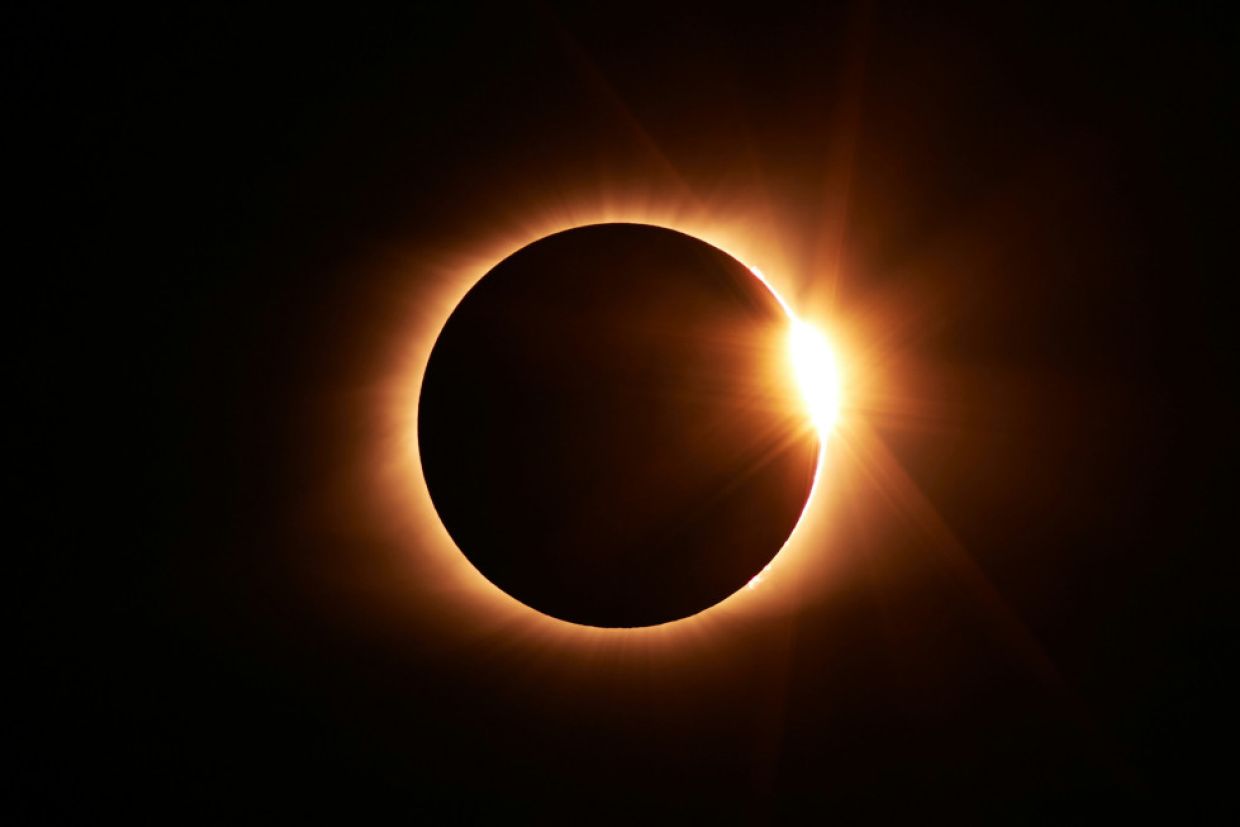On April 8, 2024, Kingston and a lucky few areas in southern Ontario will witness a once-in-a-lifetime event: a total solar eclipse.
The 2024 eclipse will be visible from Mexico, the United States, and Canada. For the first time in almost 700 years, Kingston is in the path of totality, or where the Sun will be completely blocked out by the Moon. This means many people will be flocking to the area to view this wondrous celestial spectacle. Queen's is providing certified eclipse glasses to the Kingston community for free.
For Kingstonians, this coming total solar eclipse will truly be a once-in-a-lifetime event: as mentioned, the last eclipse was almost 700 years ago in 1349, and the next one won't be for another 375 years in 2399!
A solar eclipse occurs when the Moon passes between the Earth and the Sun, casting its shadow on the Earth. A total solar eclipse, like the one that will occur on April 8th, 2024, occurs when the Moon completely blocks out the Sun's light and causes night-like darkness during the day on a very slim sliver of the Earth's surface. This sliver is also known as the path of totality.
Notable cities in the path of totality include Kingston, Montréal, Niagara Falls, Hamilton, and more. Other major cities such as Toronto and Ottawa however, are not in the path of totality. People in these cities will still see most of the eclipse, but will miss the incredible spectacle of absolute totality. You can check out the entire path of totality on Time AndDate, or get exact details on your location using Xavier Jubier's Google Map.
The Queen's Eclipse Task Force is working in tandem with organizations across Ontario to ensure all schools in the KFL&A have access to educational activities, resources, and eclipse glasses or viewers for the day of the eclipse.
We in the Queen's community want to ensure that everybody has a chance to experience the 2024 total solar eclipse safely. Consider using:
- Free Sounscapes App - A free app developed by ARISA Lab: useful to all, but geared toward the Blind and Low Vision (BLV) community. The app includes an interactive "Rumble Map", translating this highly visual event into a fully touch and sound-based experience. It also includes audio descriptions of eclipse events, educational content surrounding eclipses, and is currently available in English and Spanish.
- LightSound Device - A device developed by Harvard University students for the Blind and Low Vision (BLV) community. In short, it is an Arduino-based device that outputs sound based on detected brightness. As the Moon eclipses the Sun, device users will thus experience a representative decrease in sound. It would be a great project for high school students to produce these devices for their communities.
Consider supporting the Department of Physics, Engineering Physics, and Astronomy by making a gift to their Trust Fund. Your donation will support the enrichment of teaching and learning, student and teaching awards, Chairs and Professorships, visiting lectures, professional development, research initiatives and equipment.


